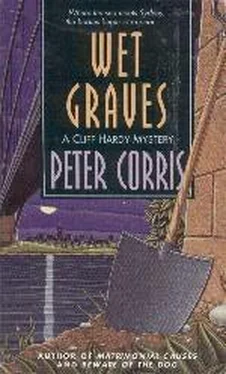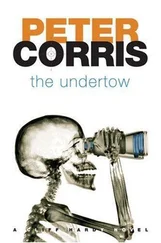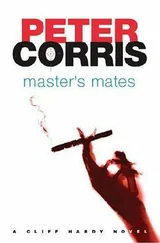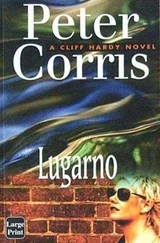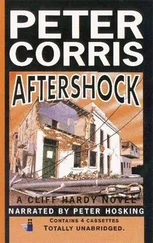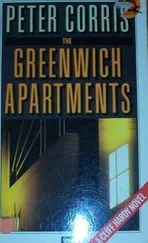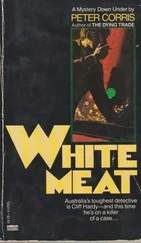Peter Corris - Wet Graves
Здесь есть возможность читать онлайн «Peter Corris - Wet Graves» весь текст электронной книги совершенно бесплатно (целиком полную версию без сокращений). В некоторых случаях можно слушать аудио, скачать через торрент в формате fb2 и присутствует краткое содержание. Жанр: Криминальный детектив, на английском языке. Описание произведения, (предисловие) а так же отзывы посетителей доступны на портале библиотеки ЛибКат.
- Название:Wet Graves
- Автор:
- Жанр:
- Год:неизвестен
- ISBN:нет данных
- Рейтинг книги:5 / 5. Голосов: 1
-
Избранное:Добавить в избранное
- Отзывы:
-
Ваша оценка:
- 100
- 1
- 2
- 3
- 4
- 5
Wet Graves: краткое содержание, описание и аннотация
Предлагаем к чтению аннотацию, описание, краткое содержание или предисловие (зависит от того, что написал сам автор книги «Wet Graves»). Если вы не нашли необходимую информацию о книге — напишите в комментариях, мы постараемся отыскать её.
Wet Graves — читать онлайн бесплатно полную книгу (весь текст) целиком
Ниже представлен текст книги, разбитый по страницам. Система сохранения места последней прочитанной страницы, позволяет с удобством читать онлайн бесплатно книгу «Wet Graves», без необходимости каждый раз заново искать на чём Вы остановились. Поставьте закладку, и сможете в любой момент перейти на страницу, на которой закончили чтение.
Интервал:
Закладка:
“Meredith’s personally bringing some-one in to look at the body?”
“Yes, probably a relative.”
“I showed you my private enquiry agent licence before.”
“You did.”
“I’m working on a missing persons case.”
“I guessed that. Not your subject in the drawer, eh?”
“No. What makes you think the sergeant’s got hold of a relative?”
“I think he said so on the phone. He’s a pleasant chap. We’ve talked a bit. I’ve a knack for getting people to talk. When I’m a doctor…”
“Which I’m sure you will be.”
“Thank you. It could be useful.”
“Certainly. Do you know why the police are so interested in this body, doctor?”
He let go one of the few smiles the place would see all day. “I heard the sergeant say something about another bridge case. I didn’t know what that meant. The harbour bridge, I assume. But those injuries aren’t consistent with a fall…”
I didn’t hear the rest of what he said. I was out through the door and down the steps looking along the street for a place to hide. I stood in a shop doorway near the Ross Street corner and watched a young, smartly dressed man climb out of a red Holden Commodore, open the back door and escort a small, middle-aged woman to the steps of the morgue. Another car drew up, parked illegally, and a big man in a rumpled suit got out and joined the pair on the steps. They went in and I waited. When they came out the woman was distressed, leaning on the young man’s arm and holding a handkerchief to her face. The other man, whom I’d tagged as Meredith by now, talked briefly with them, patted the woman’s shoulder and went off to his car. I scooted down the street for mine and was sitting in it, ready to go left or right, when the Commodore, moving slowly as if it was already part of a funeral procession, turned out of Arundel Street.
The Commodore turned left into Parramatta Road, and I had to skip through a second of red light to stay behind. A bad start. Do that to someone who suspects he’s being followed, and it’s like turning on a siren. But the Commodore driver didn’t react. He drove steadily in the centre lane up past the railway and through Surry Hills until he picked up the freeway to the eastern suburbs. A good, considerate driver-the easiest kind to follow. I stayed modestly back, moving up occasionally to catch a light, but not getting any closer than I needed to. I made a mental note of the registration number and tried to guess where we would end up. I plumped for Bondi Junction and was almost right, but on the low side, sociologically. The Commodore slid down the leafy driveway beside a block of flats in Birriga Road, Bellevue Hill.
I stopped further up the curving, rising road and walked back to the flats. It was an old block of about ten apartments that had once commanded a majestic harbour view at the back. Even from the road you could see that the modern, multilevel building had whittled this away. Still, a bijou address, especially with the off-street parking. The Commodore was parked in the space along the side of the wide drive-way marked ‘6.’ I stood around contemplating my next move when a white Jaguar cruised noiselessly up and stopped fair and square across the entrance to the drive.
It was my day for crossing roads and taking cover. I stood behind a VW van parked on the other side of the road and saw a white-haired man get out of the Jaguar and help the woman I’d seen at the morgue into the back of the car. The young man was there too, patting people and murmuring things, but he stayed behind as the Jag drove off. He held a respectful attitude until it was out of sight and then he seemed to loosen up. His step on the way back down the drive was almost jaunty. The wind was blowing leaves along the footpath, and a gust pushed a heap of them up against my feet. Some detective, I thought, stands around being late autumnal while things are happening. Breaking in on bereavement is one thing, but if the man with the red Commodore had been bereaved he’d got over it awful fast.
Flat 6 was on the second level at the back. The entrance was through a hand-some door in a tiled, balustraded porch. It was one of those doors that was opened electrically from inside the flats but it wasn’t locked. I looked down and saw that the door had snagged on a piece of uplifted carpet, just enough to prevent the lock from engaging. Conclusion: the young man didn’t live here and didn’t know that you had to give the door a shove to get the security you were paying for. I went into a quiet, cool lobby with cream walls and dark timber and up a flight of stairs. I tried to give my knock on the door of number 6 the authority that brooks no denial.
The man who answered the door was middle-sized and fair in colouring except for his slightly flushed face. He’d taken off his suit jacket and loosened his tie. He held an opened bottle of champagne in one hand. “What do you want?” he said.
I flashed the licence folder quicker than a camera shutter. “My name is Hardy. Sergeant Meredith asked me to have a quick word with you.”
The familiar name did the trick. He eased back and I was part way through the door before an objection occurred to him. “He didn’t say anything to my mother or me back at the morgue.”
I fished out my notebook and leafed through, still inching my way in. “Well, he knew your mother’d be distressed. Now you are Mr…?”
“Clive Glover.” He held up the bottle. “I suppose this looks bad?”
“I don’t know, sir. Not necessarily. Could we go inside? Thank you. Now your mother made a formal identification of…?”
We moved down the passage into a large sitting room with a kitchen off it to one side and another passage that probably led to bedrooms. “My father, Mr Colin Glover. Yes.”
He sat down in an easy chair in front of an elaborate marble-edged fireplace. A half-filled tulip-shaped champagne glass was sitting on the tiles in front of the grate.
I looked around the room, which showed signs of affluence, taste and an orientation towards the past. The furniture was expensive but old; the decorations owed nothing to modern ideas of design.
One item was of more interest to me than others-of great interest. I’d missed it at first because the bright, late morning light, coming in from a window that gave the depleted view of the harbour, struck the glass and obliterated the image. I moved a little and could see it. Hanging over the fireplace was a large photograph in a heavy black frame. The picture was of the last stage of construction of the Sydney Harbour Bridge.
8
“Well, I don’t care. I hated the old bastard.”
“Mr Glover?”
He leaned forward, filled a glass, lifted it and drained the contents. Then he poured another and sipped. “My father. I’m glad they found him, and I’m glad they found him dead. Being missing was no good to me.”
I sat down on a two-seater couch without being invited. I probably wouldn’t have refused a glass of champagne, but Glover seemed intent on drinking the whole bottle himself. He was a nervy type, I decided-inclined to be loud-mouthed and assertive but really pretty unsure of himself. I noticed that his fingers were heavily nicotine-stained a millisecond before he rummaged in the pocket of the jacket he’d dumped on the back of his chair and pulled out a packet of Senior Service. He lit up and sucked the smoke deep. There was no ashtray around. It wasn’t the sort of room where you expected to find one.
“I don’t think I understand,” I said.
“I’m not going to make a secret of it. My father was ruining the business. He wouldn’t listen to me when I said I could save it because he said only engineers understand engineering.”
“And you are…?”
Читать дальшеИнтервал:
Закладка:
Похожие книги на «Wet Graves»
Представляем Вашему вниманию похожие книги на «Wet Graves» списком для выбора. Мы отобрали схожую по названию и смыслу литературу в надежде предоставить читателям больше вариантов отыскать новые, интересные, ещё непрочитанные произведения.
Обсуждение, отзывы о книге «Wet Graves» и просто собственные мнения читателей. Оставьте ваши комментарии, напишите, что Вы думаете о произведении, его смысле или главных героях. Укажите что конкретно понравилось, а что нет, и почему Вы так считаете.
